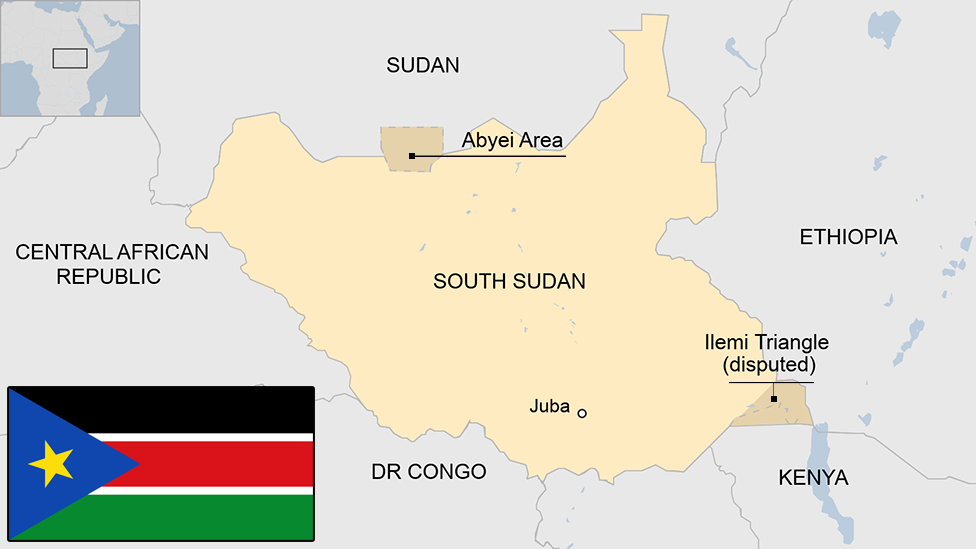Cambridge University student Peter Biar Ajak 'detained in hellhole'
- Published
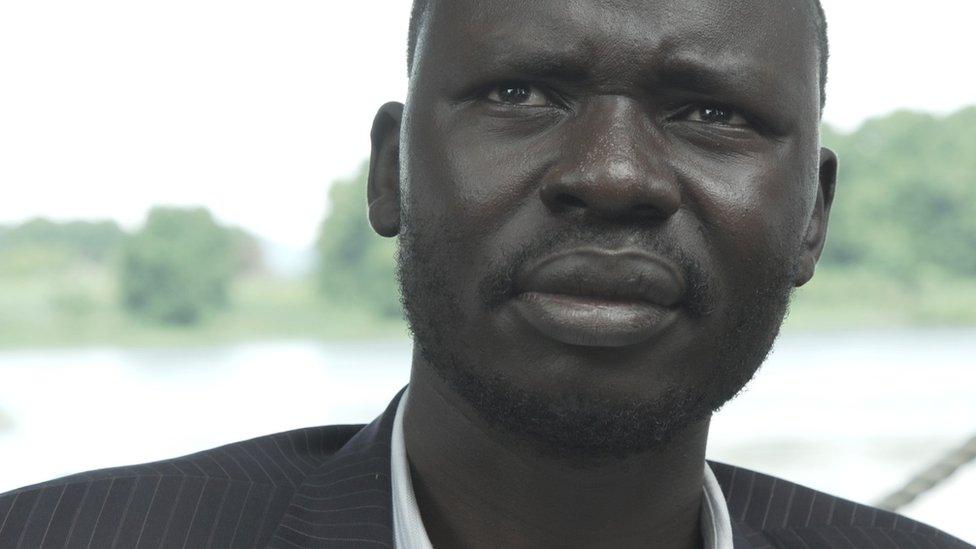
Peter Biar Ajak was one of Sudan's "Lost Boys", displaced during the civil war
A Cambridge University student facing the death penalty in South Sudan is being "arbitrarily detained in a modern-day hellhole", his lawyer says.
PhD student Peter Biar Ajak, 35, a critic of his country's regime, has been detained without charge since his arrest at Juba Airport in July.
His lawyer Jared Genser said this was "in clear violation of his rights under international law".
The government of South Sudan could not be reached for comment.
Shortly before his arrest, Mr Ajak had tweeted about South Sudan's "so-called leaders"., external
Human rights group Amnesty International is campaigning on his behalf and his plight was highlighted this week in the United States Congress.
Mr Genser said his client was one of Sudan's "Lost Boys", displaced by the country's civil war.
He resettled in the United States, studying at La Salle University in Philadelphia and Harvard University, before moving to Cambridge University.
Returning to his home country on 28 July to hold a youth forum, he was arrested and taken directly to custody.
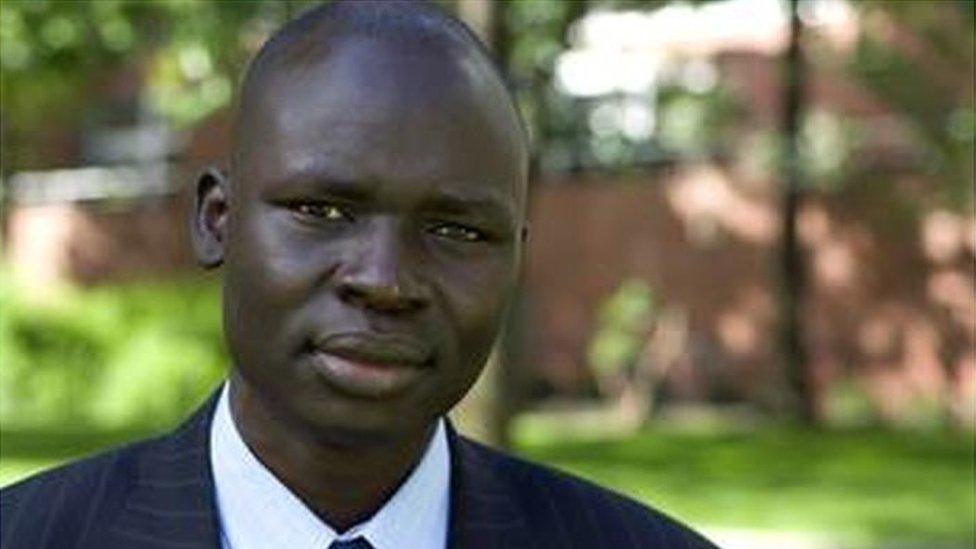
Mr Ajak is the father to two young children
Mr Genser said his client had called for the country's current leaders to step down so that younger people could take over and achieve peace.
"This has become a real problem for the government in South Sudan, which then decides to target him for arrest and arbitrary detention because he was being a very effective critic," he said.
On Thursday, Congresswoman Madeleine Dean, who "knew Peter as a brilliant student and leader" while teaching at La Salle University, drew attention to his detention in the US House of Representatives.
Allow X content?
This article contains content provided by X. We ask for your permission before anything is loaded, as they may be using cookies and other technologies. You may want to read X’s cookie policy, external and privacy policy, external before accepting. To view this content choose ‘accept and continue’.
Mr Genser said charges being considered by the South Sudanese authorities included treason and terrorism, both of which carry the death penalty.
"Somebody like him needs to be on the front lines fighting for freedom, democracy and human rights - not arbitrarily detained in a modern-day hellhole in clear violation of his rights under international law and for crimes he did not commit," said Mr Genser.

South Sudan fact file
The East African nation is world's youngest, having gained independence in 2011, but has been troubled by internal conflict for much of its existence
A 2017-18 Amnesty International report found approximately one third of the population had been displaced by the conflict
By the end of 2017, UNICEF estimated that more than 19,000 child soldiers had been used in the country's civil war
More than half the country's population faces severe hunger and food insecurity, external

A Cambridge University spokeswoman said: "The university remains deeply concerned about Peter's welfare and his access to legal representation and the violation of his rights in accordance with the constitution of South Sudan, which guarantees all South Sudanese people liberty and security of person, due process, and freedom of expression and association."
Seif Magango, Amnesty International's deputy regional director for East Africa, said Mr Ajak's ongoing detention without charge was "absurd" and in breach of South Sudan's own constitution and international law.
"South Sudanese authorities must either release him so he can re-join his wife and children who miss him dearly, or charge him with an offence recognised under international law," he said
- Published24 January 2019
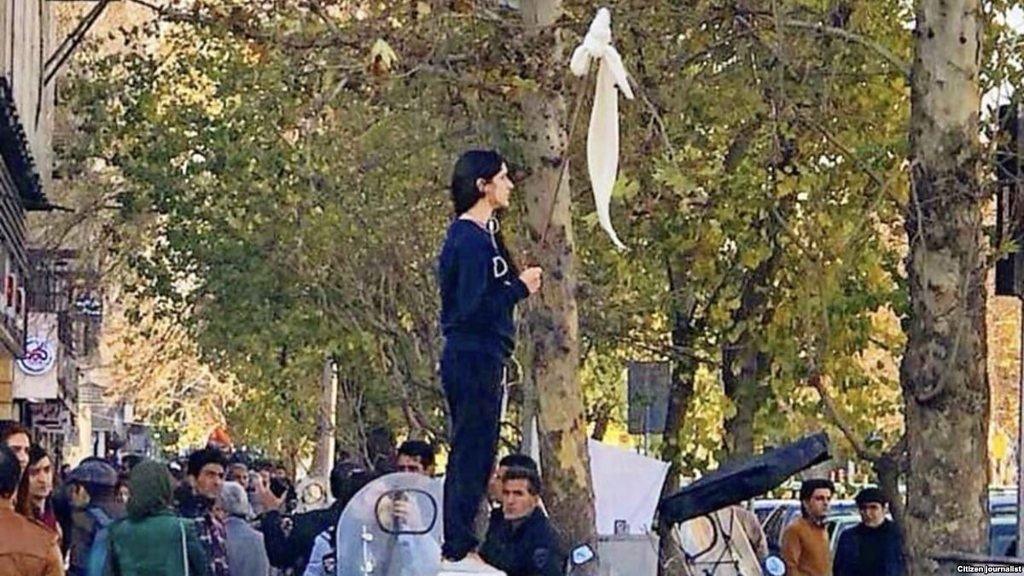
- Published6 August 2018
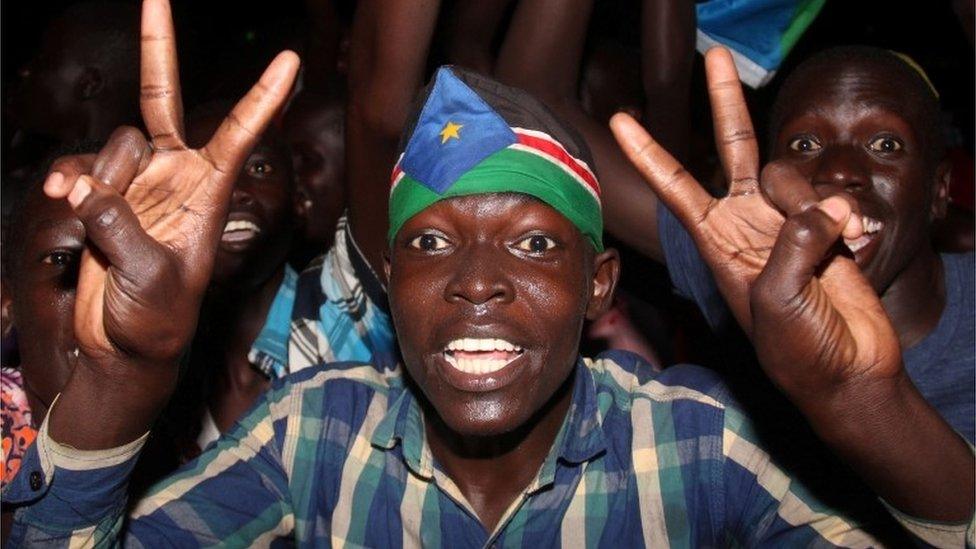
- Published18 April 2023
